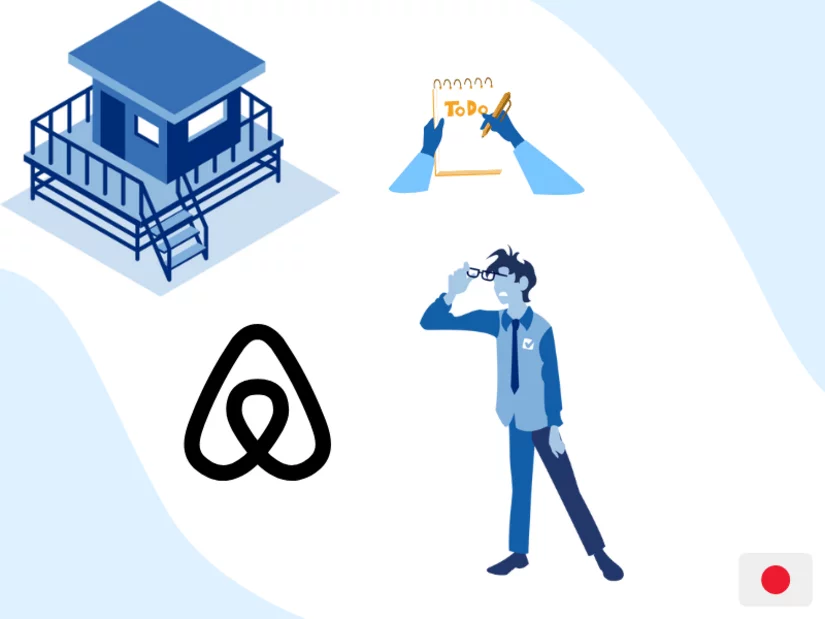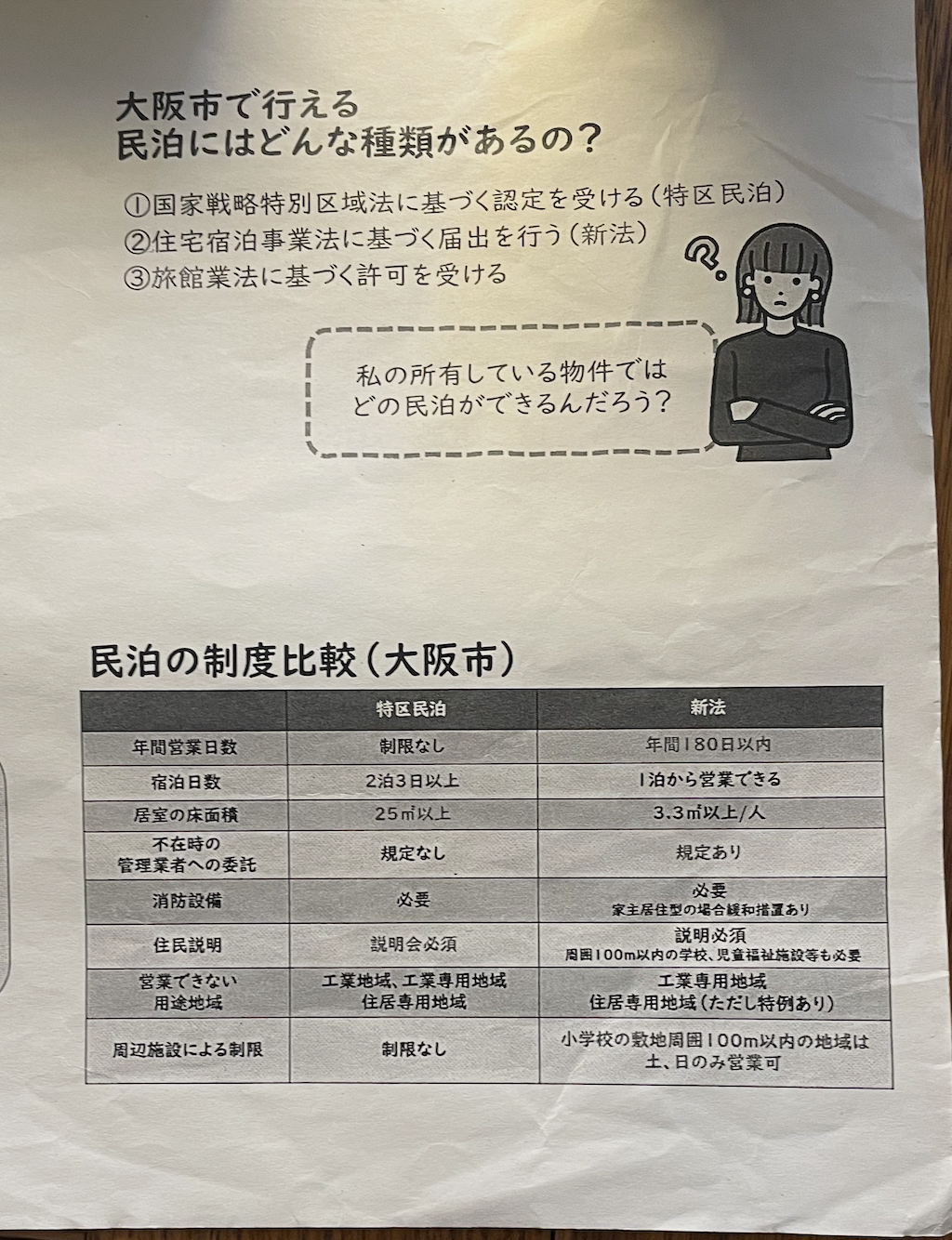How to Get an Airbnb License in Japan 2025

Japan has become a top destination for global travelers, with its rich culture, advanced technology, and stunning landscapes attracting millions each year. In 2019, before the pandemic, Japan welcomed a record-breaking 31.9 million international tourists, compared to just 8.6 million in 2010. While these numbers dipped due to travel restrictions, tourism is rebounding rapidly, with government initiatives aiming to exceed 40 million visitors annually by 2025.
This surge in tourism presents a lucrative opportunity for property owners, particularly those interested in hosting on Airbnb. However, Japan’s strict regulations mean picking the right license to operate legally. This guide explains how to obtain an Airbnb license, detailing the steps and different license types available.

Understanding the Three Types of Licenses
1. Standard Minpaku License
The Standard Minpaku License limits usage to 180 days per year and requires a minimum property size of 20 square meters. Neighborhood consent may be necessary depending on local regulations For exemple, you need the consent of the nearest school. Ideal for seasonal rentals or part-time operations.
2. Special Zone Minpaku License
Available in designated zones like Ota Ward (Tokyo) and Kita Ward (Osaka), this license allows operation 365 days a year. Requirements include a minimum property size of 25 square meters, a 2-night minimum stay, and stricter safety standards. Popular among year-round operators, but compliance rules are more demanding than the Standard Minpaku License.
3. Hotel License (Ryokan License)
The Hotel License permits unlimited operation but comes with the highest compliance requirements, such as building modifications and hotel-like amenities. Best for larger-scale or traditional operations.

Step-by-Step Guide to Getting an Airbnb License
Step 1: Assess Your Property
- Ensure the property meets the size requirements: 20 square meters for Standard Minpaku, 25 square meters for Special Zone.
- Obtain property ownership proof, including the 物件藤本 (Property Registry Certificate).
- Install a fire prevention system tailored to the property’s size:
- For properties under 45 square meters: Install fire and smoke detectors in every room, provide an evacuation map on the wall, and install an emergency light or exit green sign.
- Larger properties may require additional safety measures. Check local fire regulations for specifics.
Step 2: Check Local Regulations
Zoning laws significantly impact Airbnb legality. Properties in high-residential zones are usually not eligible, whereas commercial and industrial zones often allow Airbnb operations. Confirm zoning specifics with the local government office.
Step 3: Prepare Documentation
- Property blueprints and ownership proof
- Zoning approval
- Safety compliance certificates
- Operation plan detailing guest rules and maintenance
Step 4: Submit the Application
Submit your documentation to the local municipal office. Processing times vary, typically taking 1-3 months. Application fees also vary by region (around 10 000 yen in Osaka).
Step 5: Consult a Paralegal (行政書士)
Paralegals can handle the entire process, including paperwork and zoning checks. Expect to pay around ¥200,000 for their services. This option is highly recommended for non-Japanese speakers or first-time applicants.
Resources for Success
Visit the official Ministry of Land, Infrastructure, Transport and Tourism (MLIT) website for detailed guidelines: https://www.mlit.go.jp/kankocho/minpaku/.
Contact Information for Municipal Offices
Tokyo Office
Address: Tokyo Metropolitan Government Office, 2-8-1 Nishi-Shinjuku, Shinjuku-ku, Tokyo 163-8001
Phone: +81-3-5321-1111
Osaka Office
Address: Osaka Prefectural Government Building, 1-3-1 Otemae, Chuo-ku, Osaka 540-8570
Phone: +81-6-6944-1234
Frequently Asked Questions (FAQ)
What is Minpaku?
There is no legally defined term for “Minpaku” (private lodging), but in general, it refers to providing accommodation services to travelers by utilizing all or part of a residential property, such as detached houses or apartment buildings.
In recent years, businesses matching property owners who want to rent out vacant rooms on a short-term basis with travelers looking for accommodation have rapidly expanded worldwide through internet platforms, leading to a significant increase in such services.
In Japan, expectations for Minpaku have grown due to:
• The increasing demand for diverse accommodation options from the rapidly rising number of inbound foreign tourists.
• The effective utilization of vacant houses, which have increased due to Japan’s aging and shrinking population.
However, there are concerns about public health and safety, such as:
• The need for rules to prevent issues with local residents and communities.
• Cases where unlicensed operations occur despite the requirement for a permit under the Hotel Business Act (Ryokan Gyouhou).
To address these challenges, the Housing Accommodation Business Act (also known as the Minpaku Law, Act No. 65 of 2017) was enacted in June 2017 to establish regulations and promote the healthy growth of private lodging services under specific rules.
Operate Airbnb in an apartment (mansion in Japanese)?
Yes, you can operate Airbnb in an apartment, provided it meets the local zoning laws and the building management rules. Some apartment complexes prohibit short-term rentals, so always check with the management association first.
Hire a garbage collection service?
Yes, as Airbnb operations are considered a business, public garbage collection services cannot be used. You must hire a city-approved garbage collector. The cost is typically around ¥10,000 for one collection per week.
Collect and submit guest information?
Yes, Japanese law requires all Airbnb operators to collect personal information from guests, such as their passport details. This information must be securely stored and periodically submitted to local authorities. Failure to comply may result in penalties.
Conclusion
Obtaining an Airbnb license in Japan can be a complex process, but the rewards of operating in this vibrant market make it worthwhile. Understanding the three license types and adhering to local regulations are key. For additional guidance, consult the MLIT website or a paralegal to navigate the requirements with ease. Whether you're pursuing seasonal rentals or full-year operations, Japan's growing tourism industry offers immense potential for Airbnb hosts.
